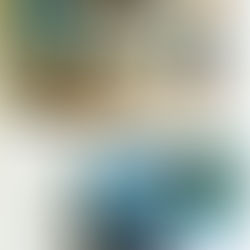

Through the Looking Glass and Beyond: Fast by Jorie Graham
Jorie Graham is a master orchestrator of thought; her poems have always treated thought as a kind of entity. Graham has studied this...


Brazen Hope: Ramshackle Ode by Keith Leonard
“Never mind / the last exhale. Think / about the first. And the second.” These lines which grace the ending of Ramshakle Ode distill the...


Diagram of a Tongue: Silent Anatomies by Monica Ong
Silent Anatomies by Monica Ong is unlike any book of poetry I have ever encountered. It’s no wonder Joy Harjo selected it as the winner...


Imaginary Worlds: Our Lands Are Not So Different by Michael Bazzett
Michael Bazzett’s second collection, Our Lands Are Not So Different, defies classification, it exists in its own world; a world seen once...


Nature’s Hem/Hymn: Ornament by Anna Lena Phillips Bell
An ornament is meant not only to adorn but to set off the beauty of the person it is placed on or the room it is placed within, but what...


Bridled Fauna: Like a Beast by Carly Joy Miller
In the chapbook, Like a Beast, Carly Joy Miller interrogates the ways in which the beast is tamed: bridled, harnessed, handled; the beast...


Grief is a Question: How to Prove a Theory by Nicole Tong
“Given / the practice to call things gone, / how shall I speak of the line, / which neatly remains?” This question is at the heart of...


Untamable and Unnamable: Orogeny by Irène Mathieu
The word “orogeny” comes to us via Ancient Greek words meaning— mountain and genesis, and refers to the geological process through which...


A Starling’s Song: Forest Primeval by Vievee Francis
“Something has snapped in two. Something has been lost / that won’t return in this life. I want to find the source.” It is not just the...


A Woman’s Acreage: Blackacre by Monica Youn
Poetry often benefits from a poet’s previous career or occupation. Some of my favorite collections were written by doctors and nurses...












































